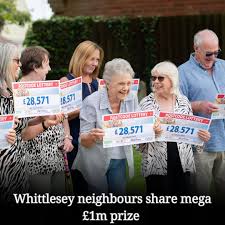The Postcode Lottery: A Crucial Community Issue

Introduction
The postcode lottery is a term that refers to the uneven distribution of public services and resources based on geographical location within the UK. This phenomenon has significant implications for residents, affecting everything from healthcare access to educational opportunities. As budget allocations often vary by postcode, understanding the postcode lottery is crucial for addressing inequalities and ensuring fair treatment for all citizens.
Defining the Postcode Lottery
In essence, the postcode lottery is the disparity in the quality and availability of services based on one’s residential area. For example, some regions may have access to quicker emergency response times, higher quality hospitals, or better schools compared to others. According to a 2022 report by the Health Foundation, residents in wealthier areas are 24% more likely to receive timely medical interventions than those in disadvantaged locations, vividly highlighting the divide.
Healthcare Disparities
Healthcare is one of the most prominent examples where the postcode lottery is evident. NHS services, funded primarily by local councils and clinical commissioning groups, lead to inconsistencies in the services offered. A recent investigation found that patients in some postcodes waited an average of 20 weeks for certain surgeries, whereas in others, the wait time was reduced to just 10 weeks. This raises important questions about fairness and resource allocation in an ostensibly universal healthcare system.
Education and Local Funding
The postcode lottery also extends into education, where funding for schools is often tied to local council finances. Schools in affluent areas, benefiting from higher property taxes, can offer more resources and extracurricular activities compared to schools in less wealthy regions. A 2023 survey revealed that 60% of parents believe the quality of local schooling is affected directly by their neighbourhood’s economic status. This inequity can have long-term consequences for children’s educational outcomes and future opportunities.
Community Responses
In response to this ongoing issue, various advocacy groups and charities are working to raise awareness and lobby for policy changes that promote equity among communities. Initiatives such as local government consultations and awareness campaigns aim to bridge these gaps. Citizens are encouraged to engage with their local representatives to address disparities; however, significant systemic changes are needed to resolve these inequalities fundamentally.
Conclusion
The postcode lottery remains a pressing issue in the UK that affects many aspects of daily life, particularly healthcare and education. As long as services are funded based on geographical location, disparities will persist. Addressing these inequalities requires collective action and policy reform to ensure that every citizen, regardless of their postcode, has access to the same quality of services and opportunities. Moving forward, continued public discourse and concerted efforts are essential to create a fairer society.








